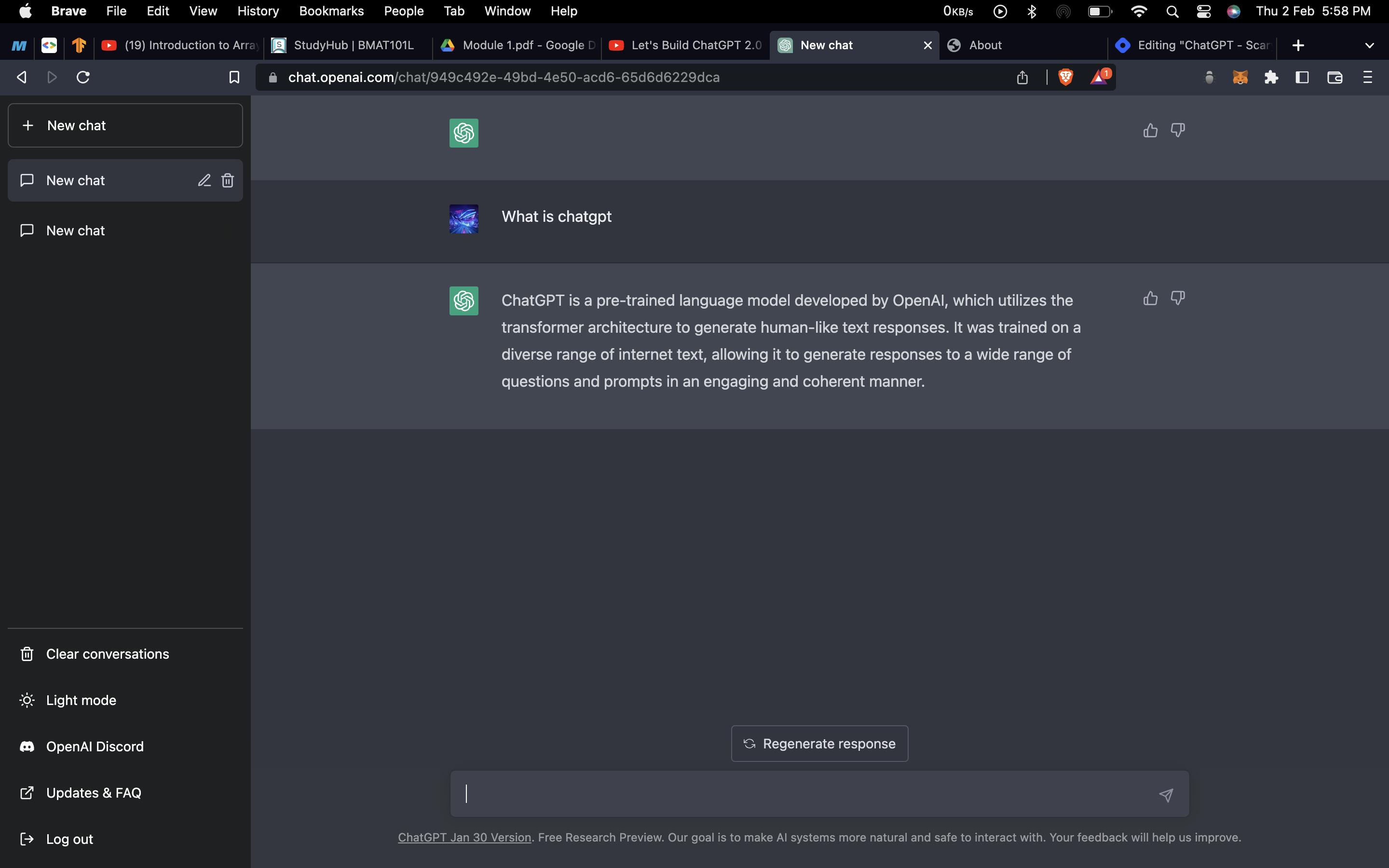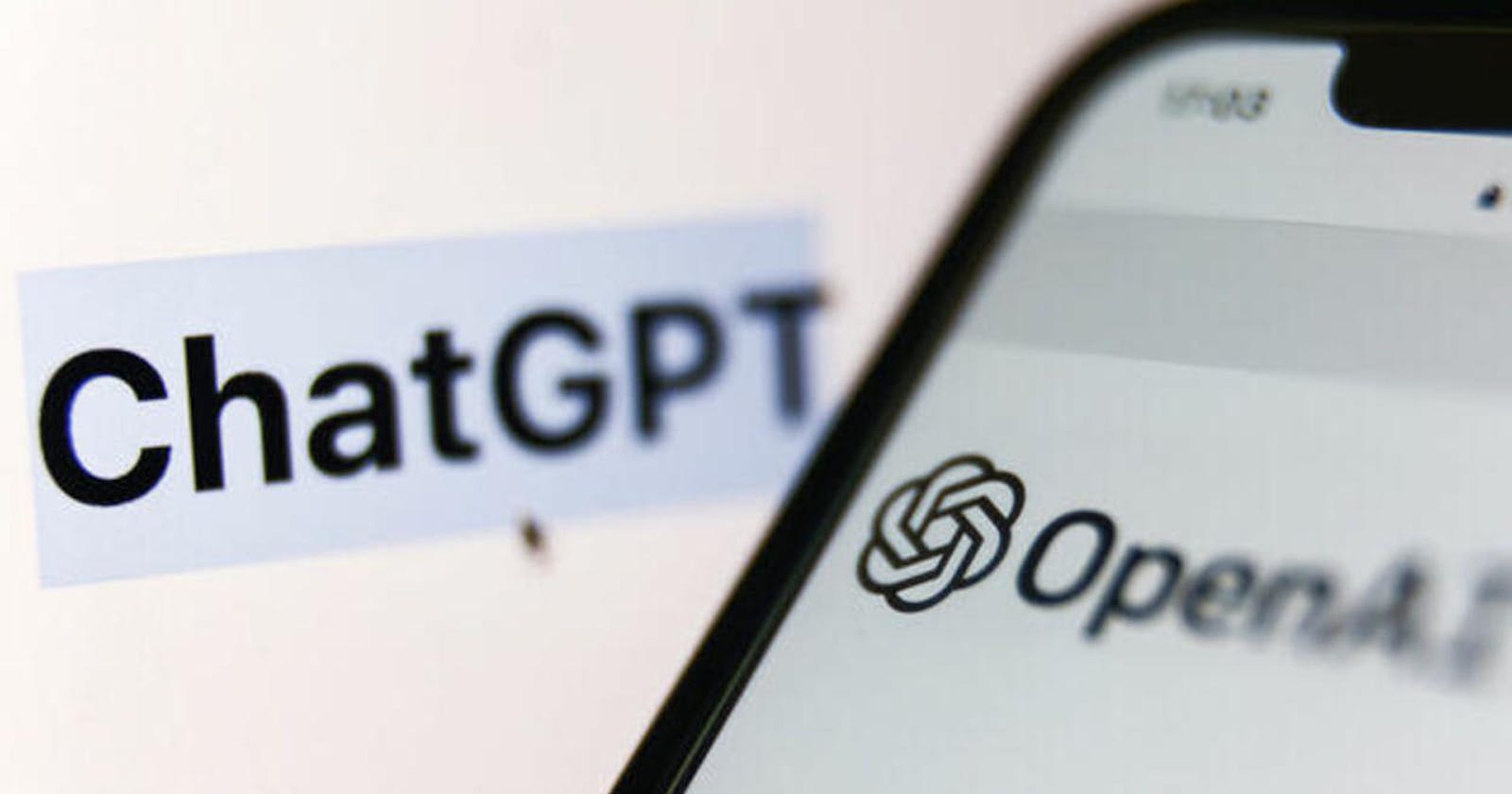A few months ago, my friends and I tried ChatGPT and were impressed with the quality of the chatbot's responses (It really is an injustice to OpenAI comparing ChatGPT to a Generic ChatBot, but in the end, it is a text-based AI ChatBot, so you see the point). Much better than many other chatbots we've seen before. I even used it to think of hypothetical scenarios and, to my delight, came up with some great stories.
So What is ChatGPT?
As I said earlier, ChatGPT is a text-based AI ChatBot with a Ton of Neural Networks which can feed it practical datasets that almost make it as good as a human being inside a Computer (no cap).
It is developed by OpenAI, which was recently subsidized under Microsoft after Microsoft invested $10 Billion USD in it.
Timeline: Microsoft provided OpenAI LP with a $1 billion investment in 2019 and a second multi-year investment in January 2023, reported to be $10 billion.
Here is what ChatGPT typed when I asked it about itself:

How it Makes Our Life Easier (From a Student Perspective)
Well, I have used ChatGPT a heck ton of times as a replacement for StackOverFlow as SOF has so many mean users (you know what I mean).
And a lot of students rely on it for homework and assignment completion and did I tell you this, ChatGPT takes essay writing to a whole another level of creativity and yes, which results in good grades 😏.
Teachers should be extremely concerned about students outsourcing their writing using ChatGPT, but educational institutions will adapt to improve critical thinking or reasoning.
So Is it a Problem?
This has always been at the forefront of AI's fight against humans. I've heard in the past when people said "robots do the work" that "art" would never suffer the same fate. Making mistakes and being human is what makes art meaningful. But it sets a precedent that we, as moviegoers and general consumers, will allow when it comes to the future of AI.
Why ChatGPT Cant Replace Humans?
(At least Currently 🥲)
AI prose might read surprisingly well, but important elements of writing — including accuracy, human nuance, and genuine insight into a topic — are not quite there yet. It’s important to remember that the AI is giving you answers based on keywords you input — it can’t genuinely comprehend these words in a human manner. This leads to common quirks in the answers it provides.
For example, June Wan, a content creator, asked ChatGPT to write a review of the iPhone 14 Pro. Wan was generally impressed with how the review was written, providing a complete intro-to-conclusion piece that backed up its claims with an analysis of the product and how it may impact user experience. However, beyond that, the information provided wasn’t always completely accurate. Wan believes this is because the AI can’t distinguish whether a source is reliable.
Wordable CEO Brad Smith told Forbes:
“Unless AI is basically robotically plagiarizing other content already on this subject, it can’t compare alternatives like this or provide additional context as to why one argument might or might not be legitimate.”
So What's Next?
While ChatGPT may not be ideal for everyday professional use right now (particularly in certain sectors), it’s likely to improve over time, though the jury’s out on whether it will ever be good enough to replace real writers. If you’re interested in seeing how the tool develops, OpenAI has opened up a waitlist for a paid experimental version called ChatGPT Professional.
The future is extremely unpredictable and exciting at the same time.
Peace!
